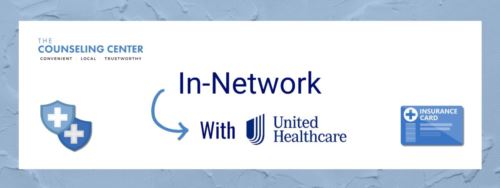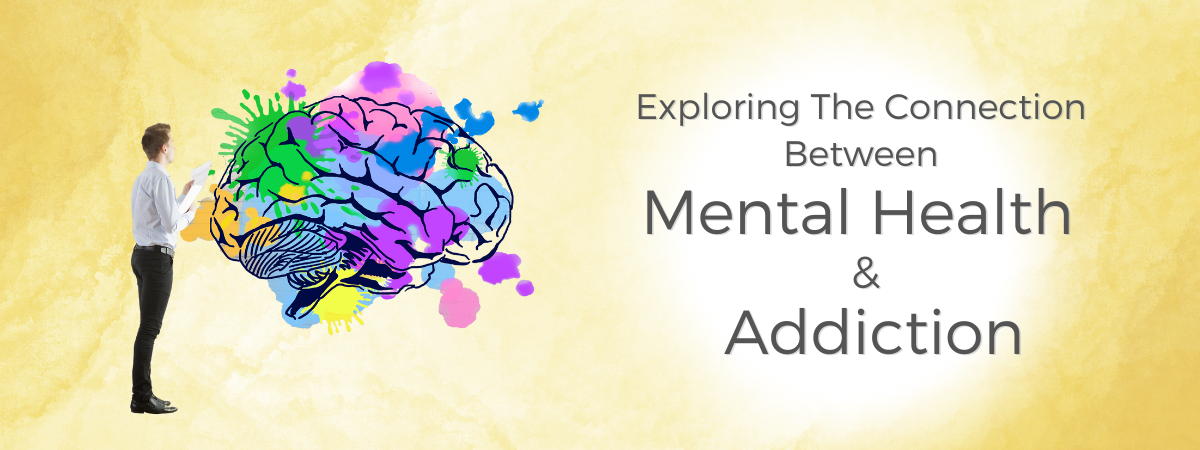

Is There A Connection Between Mental Health And Addiction?
Have you ever questioned what causes substance use disorders (SUD)? Finding the answer could give us the ability to stop and manage these disorders. Fortunately, the latest research is giving us insights that heighten our comprehension and enhance care. Recent studies have identified a compelling bond between substance use and mental illness. If you struggle with a SUD, you could also have a co-occurring mental disorder. With this understanding, you can find more effective treatment that navigates mental health and addiction.
What’s The Connection Between Mental Health And Substance Use?
In a recent study, the Substance Abuse and Mental Health Services Administration (SAMHSA) determined that around 17 million adults in the U.S. experience both a mental illness and a SUD. They also found that adults and teens with mental illnesses were more likely to use habit-forming substances. This information indicates a strong connection between mental health and substance use throughout the country. But how can mental health disorders lead to substance use?
How Does Mental Illness Lead To Substance Use?
It’s well known that mental disorders can be difficult to deal with. If not addressed effectively, your disorder can leave you feeling despondent, angry, afraid and confused. You may even experience some crippling physiological symptoms. This is true whether you have been formally diagnosed with a disorder or do not know you have one.
If a mental disorder makes your life challenging, it’s understandable you may have been pushed to take habit-forming substances to manage. The chemicals make you feel temporarily better. They could initiate a “high” that makes you feel good or dull the pain you have. Under their influence, you could feel more normal and functional.
When you take habit-forming substances to offset the symptoms of a mental health condition, it’s referred to as self-medicating. You could ingest these substances to feel temporarily at ease, more energetic, or less anxious. You might also ingest them to relieve physical pains and discomforts. Self-medication includes utilizing substances not ordered by a doctor, such as illicit drugs or alcohol, as well as misuse or excessive use of prescriptions.
Self-medication often begins inadvertently. Drinking large quantities of alcohol or excessively using drugs seems like a release and a method of managing reality. Sadly, it’s difficult to cease taking something that leaves you feeling better. Your body and brain become reliant on those substances, and you can’t get by without them. What results is a pattern of self-medication that can spiral beyond your control and lead to damaging and unsafe actions.
Grasping the origin of your substance use provides a a place to start your recovery. Once you comprehend that mental illness exists at the foundation of your drug or alcohol use, you can treat both and have a stronger opportunity for recovery.
Will Substance Use Impact Mental Health Too?
The effects of mental disorders and substance use disorders can be cyclical. The chemicals in habit-forming substances modify brain chemistry. They can trigger or intensify mental illnesses. The distress of losing your life to addiction may also cause mental conditions like anxiety and depression. In response, you may depend on drugs and alcohol even more to cope, and the cycle starts over.
Why Manage Mental Health And Addiction At The Same Time?
Dealing with a substance use and mental illness might sound intimidating, even impossible. But digging into the cause of your substance use is crucial for long-term recovery. Once you recognize what co-occurring disorder led to your alcohol or drug use, you have a great starting point for treatment. Treating mental conditions with individual therapy and approved medications helps you resist addictive substances. The skills you develop in therapy for navigating mental health will help you stay sober, too. You’ll be more successful in managing your addiction when you deal with any underlying mental health issues first.
Get Help For Substance Use Disorders And Mental Illness
If you are facing co-occurring addiction and mental illness, The Counseling Center can guide you. Our qualified staff understand how to help you manage the obstacles you encounter with proven treatment. Place a call to 866-850-5001 or submit our contact form to talk to someone at once about admissions.
 The Counseling Center is now In-Network with United Healthcare. Patients can receive the full spectrum of treatment services, including outpatient and inpatient programs, mental health services, and medication-assisted treatmentRead Full Article
The Counseling Center is now In-Network with United Healthcare. Patients can receive the full spectrum of treatment services, including outpatient and inpatient programs, mental health services, and medication-assisted treatmentRead Full Article With the passing of Matthew Perry, some people are starting to ask about Ketamine and its FDA-sanctioned counterpart, Esketamine. Heres everything you should know about Ketamine and SPRAVATO.Read Full Article
With the passing of Matthew Perry, some people are starting to ask about Ketamine and its FDA-sanctioned counterpart, Esketamine. Heres everything you should know about Ketamine and SPRAVATO.Read Full Article Explore revolutionary depression treatment with Spravato (esketamine), a breakthrough for those battling treatment-resistant depression (TRD). Learn how The Counseling Center combines Spravato with holistic approaches for effective relief and recovery.Read Full Article
Explore revolutionary depression treatment with Spravato (esketamine), a breakthrough for those battling treatment-resistant depression (TRD). Learn how The Counseling Center combines Spravato with holistic approaches for effective relief and recovery.Read Full Article

